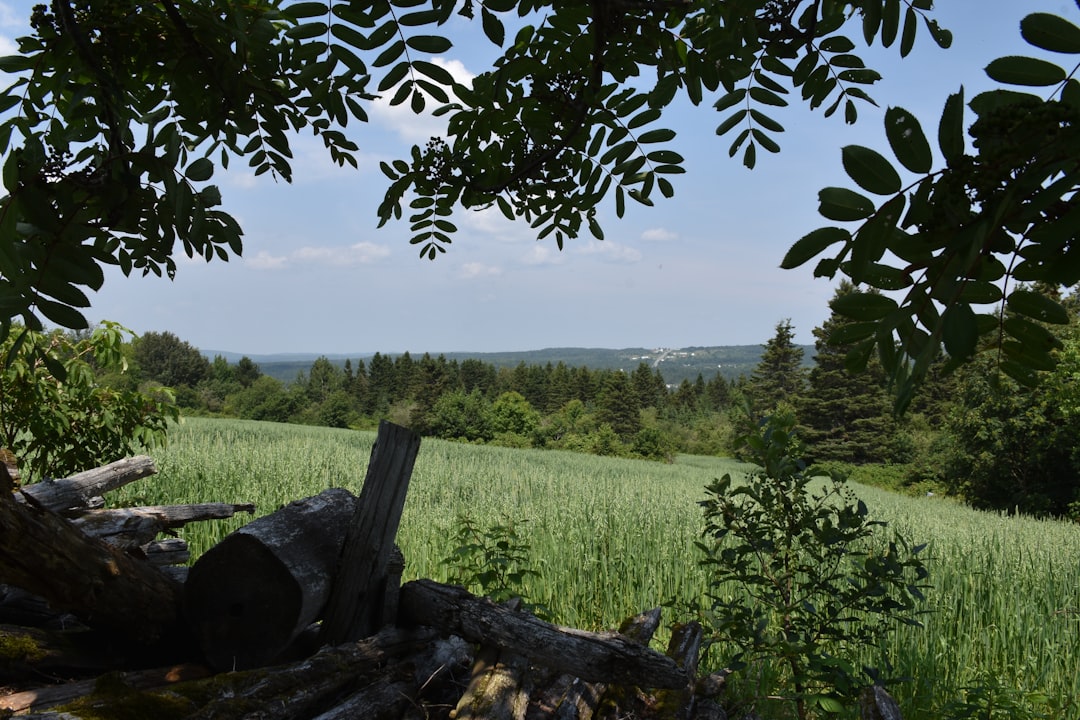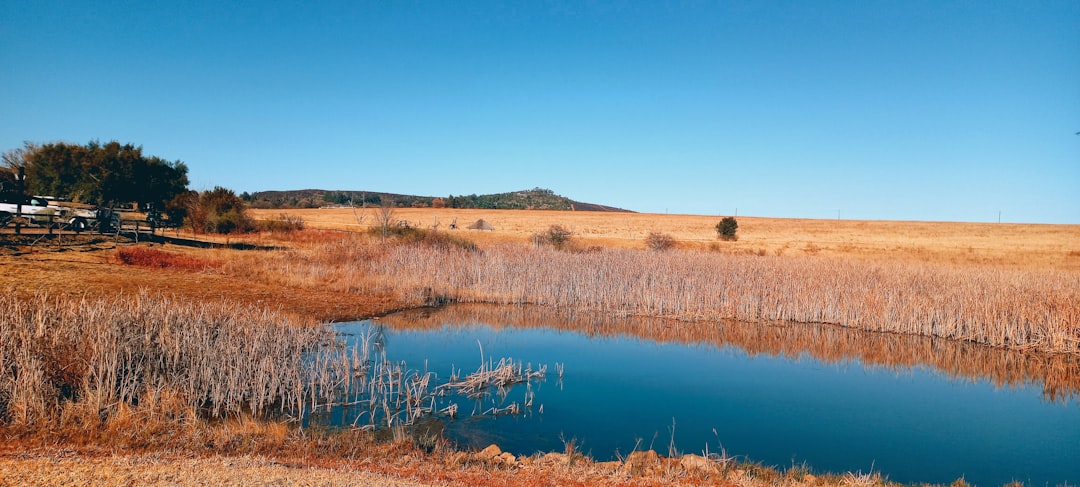
Oregon is renowned for its distinct blend of natural beauty, economic opportunity, and quality of life. The decision to purchase land here is often driven by the state's environmental stewardship, its robust agricultural sector, and the burgeoning real estate market. Individuals who are passionate about sustainability will find Oregon's commitment to green living and energy efficiency particularly appealing. This dedication not only supports a healthier environment but also fosters a community-centric approach to development.
Economically, Oregon has a lot to offer. It is home to a thriving economy with industries ranging from tech to timber. This diversity provides a stable backdrop for land investments, making Oregon an attractive location for entrepreneurs and investors alike. The state's land is also significantly versatile, suitable for various uses such as residential living, commercial developments, or agricultural enterprises.
Additionally, Oregon's aesthetic allure cannot be overlooked. The state's reputation for its scenic vistas tempts many to establish their roots here. Embracing a lifestyle intertwined with nature, future landowners in Oregon find themselves at the center of an outdoor paradise that simultaneously offers the amenities of modern living.
Oregon's topography is a tapestry of breathtaking diversity. From the rugged coastline with cliff-edged shores to the majestic Cascade Mountains, the state offers a symphony of landscapes that cater to every preference. The high desert of Eastern Oregon is a stark contrast to the verdant Willamette Valley, renowned for its fertile soils and premier wineries.
Prospective landowners might find themselves enamored with the serene beauty of Crater Lake or the awe-inspiring sight of Mount Hood. The state's expansive forests present a haven for those looking to escape into wilderness or manage forest land for conservation or timber efforts. Each region of Oregon boasts its own ecological and geographical characteristics, providing a collage of options for land buyers.
When considering the purchase of land in Oregon, it is essential to evaluate how the area's landscape aligns with your aspirations. Whether it's farming in the valley, starting a vineyard, setting up a retreat in the woods, or indulging in coastal living, Oregon's diverse environments offer a unique opportunity to create the lifestyle of your dreams on the perfect piece of land.

Selling land, particularly in a stunning and diverse state like Oregon, can be both an exciting opportunity and a daunting task.. Whether you're selling a piece of forested paradise, coastal terrain, or fertile farmland, the goal is to convert that property into cash quickly and efficiently.
Posted by on 2024-09-30

Selling Oregon land for immediate cash can be a meticulous yet straightforward process if approached correctly.. Whether you own a sprawling acreage in the Willamette Valley or a modest parcel near Crater Lake, understanding the steps involved can help ensure a smooth transaction and maximize your profit. First and foremost, it’s essential to assess the value of your land accurately.
Posted by on 2024-09-30

Selling land in Oregon can be a lucrative endeavor, but when you need cash quickly, you must strategize to ensure a swift and profitable transaction.. Whether you're facing an unexpected financial crunch or seizing an investment opportunity, the right approach can make all the difference.
Posted by on 2024-09-30

Getting instant cash offers for Oregon property is an intriguing concept that promises speed and convenience in real estate transactions.. For many homeowners, the allure of a quick sale without the traditional hassles of listing, showing, and negotiating can be compelling.
Posted by on 2024-09-30

Land purchase necessitates a thorough understanding of local regulations, and Oregon's land use laws are designed to protect and preserve the state's natural resources and beauty. These comprehensive laws aim to maintain a balance between development and conservation. The well-known Senate Bill 100 established a formal land use planning program, which serves as a foundation for local land use decisions to this day.
Zoning regulations and the state's Urban Growth Boundaries (UGB) are pivotal in determining the permissible uses of land. Before purchasing land in Oregon, it is imperative to research these aspects as they can significantly impact your ability to develop or utilize the property. Consulting with land use experts and local authorities can provide valuable information and aid in navigating the complexities of these laws.
Potential buyers should also be aware of the exclusive farm use zones and conservation programs that are integral to Oregon. These policies often offer tax incentives and benefits to landowners who abide by certain agricultural or conservation practices, thereby promoting sustainable land use and bolstering the state's natural heritage.
The climate in Oregon is as varied as its landscape, directly influencing the best use of land and the lifestyle it affords. The coastal region, with its moderate temperatures and high precipitation, is ideal for certain types of agriculture, while the drier eastern region offers a contrasting climate more suitable for other uses such as ranching or solar farming.
Considering the climate is crucial when buying land. It determines the kind of crops you can grow, the animals you can raise, and even the materials and designs you would use for construction. The western part of Oregon, particularly the Willamette Valley, experiences mild winters and warm summers, making it hospitable for a variety of farming and residential options. In contrast, the High Desert region has hot summers and cold winters, creating a different set of options and challenges.
Adaptability to climate change is another aspect to consider, with Oregon taking a proactive stance in combating its effects. Future landowners should plan for sustainability and resilience when considering their land use, ensuring that their investment remains secure in the face of a changing climate.

Finding the best deals on land in Oregon demands patience, research, and sometimes a bit of ingenuity. One tip is to look beyond traditional listings and explore county auctions, tax default properties, and estate sales which can sometimes offer land at more competitive prices.
Utilizing local contacts, such as farmers, landowners, and rural community members, can yield leads on properties that may not be listed on the open market. Building relationships within the community can provide you with insider knowledge and potentially lead to private sale arrangements.
Additionally, it's important to conduct a comprehensive appraisal and seek the services of a surveyor to ensure the land meets your requirements. This attention to detail can help avoid future issues and additional costs, securing a deal that truly reflects the value of the property.

Developing land in Oregon can be an exciting endeavor, but it comes with a host of considerations. From securing permits and abiding by zoning laws to ensuring access to utilities and infrastructure, the process can be complex. It's crucial to start with a detailed plan that considers not just the construction phase but also the impact of the development on the surrounding environment.
Partnering with local builders and architects who share your vision and have experience with Oregon's building codes and climate can be invaluable. These professionals can guide you through sustainable building practices and materials well-suited to Oregon's diverse environmental conditions.
Furthermore, consider the long-term maintenance of your development, whether it's a residential home or a commercial enterprise. Assessing the potential for growth and expansion, as well as the ongoing costs of land management, can ensure that your project is sustainable in the long run and a fulfilling realization of your dream.

A formal inspection isn't usually required but may be requested by the buyer during due diligence.
You can find reputable cash buyers through real estate agents, online platforms, and local real estate investment groups.
You will proceed with signing the purchase agreement, completing due diligence tasks, and finalizing closing paperwork through escrow services or title companies.
This can attract more buyers by providing flexible payment options but requires you to manage ongoing payments.
The timeline varies depending on market conditions but typically ranges from a few weeks to several months if priced competitively and marketed well.